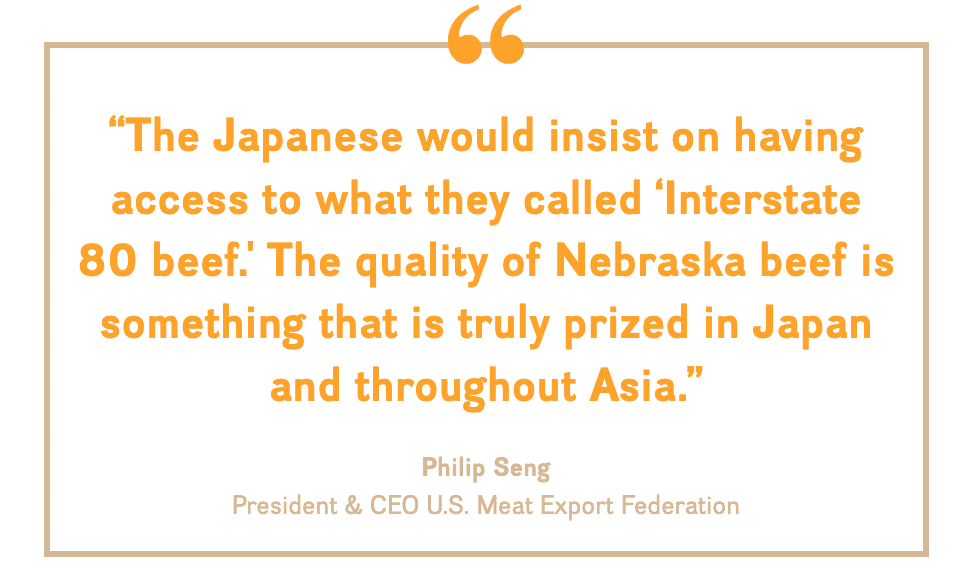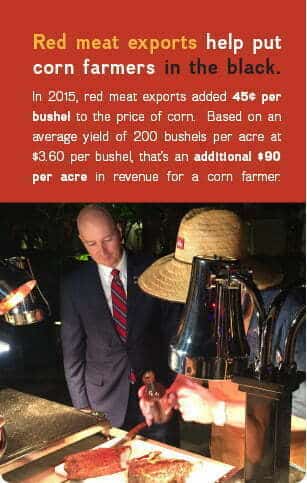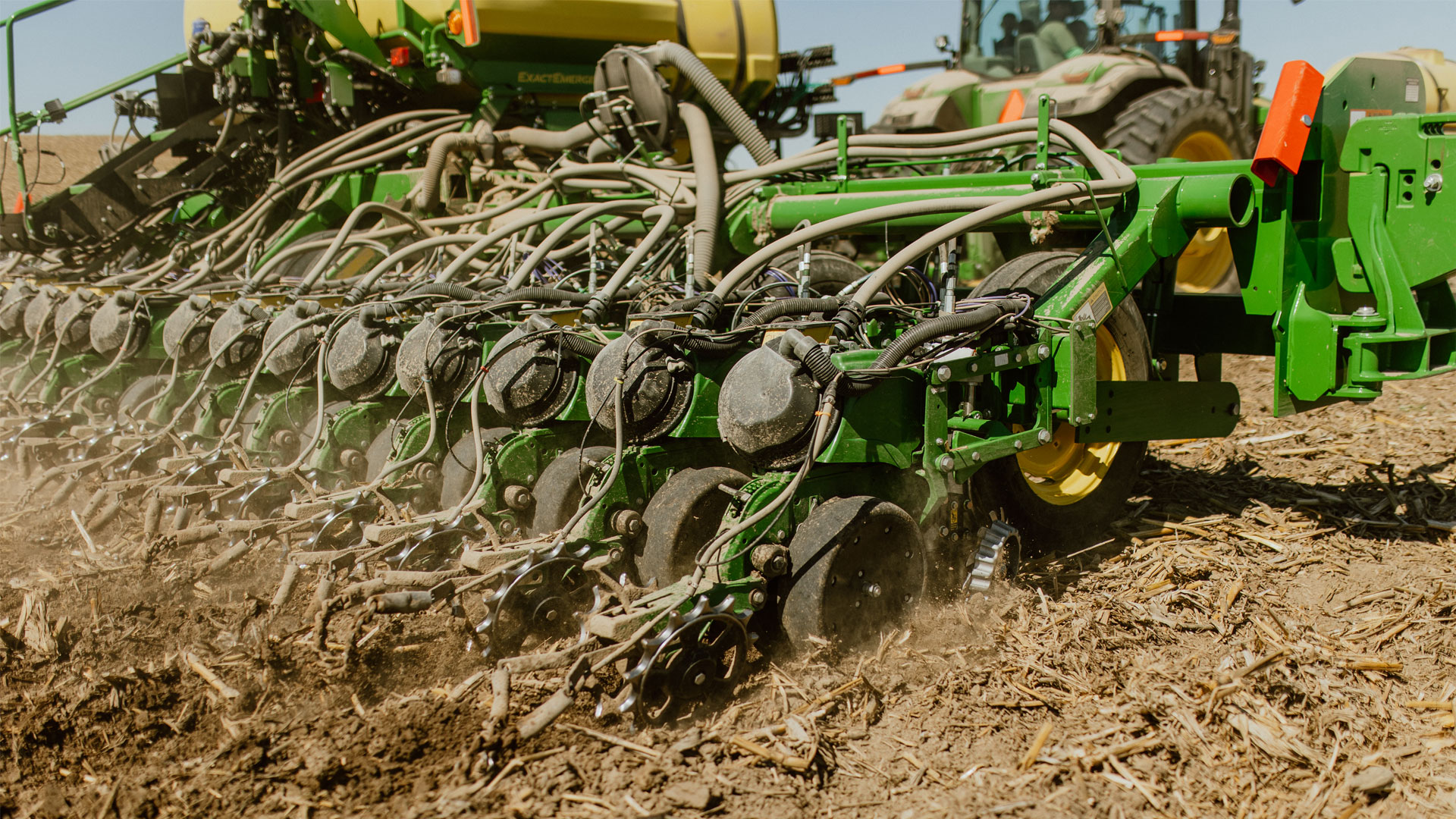
“Corn producers in Nebraska are especially well positioned to benefit from international trade,” said Philip Seng, president and CEO of the U.S. Meat Export Federation. “You have an abundant and reliable supply of corn, and you’re a top producer of red meat. More than one-fourth of your pork and about 14 percent of your beef is exported, allowing Nebraska to capitalize on the world’s growing appetite for high-quality red meat.”
This track record of abundance is a key reason behind Gov. Pete Ricketts’ increased emphasis on international agricultural trade missions. Since he took office, Gov. Ricketts has led missions to Japan, China and the European Union.






